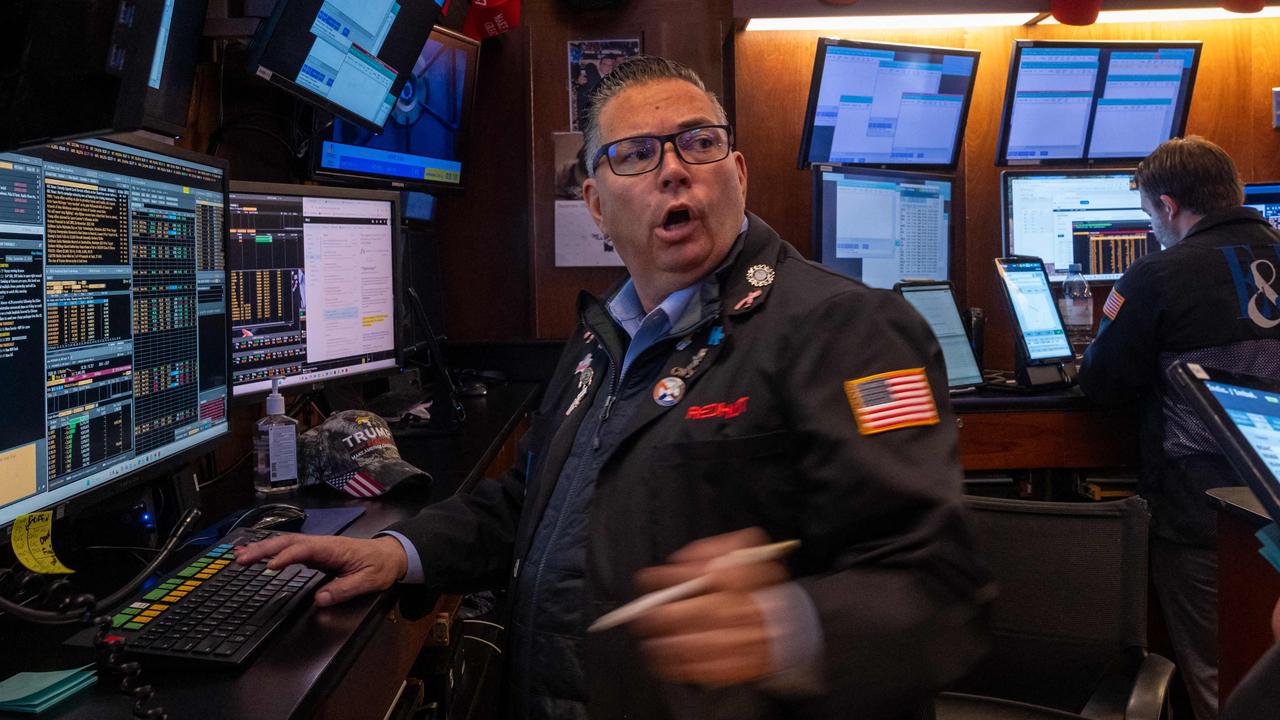US election looms as a threat to bullish share market narrative says UK bank Barclays
There are potentially far-reaching consequences from the US election, including the possibility of a new global trade war.

Business
Don't miss out on the headlines from Business. Followed categories will be added to My News.
Barclays is cautiously positive on stocks versus bonds as US rates set to fall, while the macro-economic outlook is still reasonable and a soft landing is seen as likely barring a global trade war.
As has largely been the case since the Covid-19 pandemic, the British bank expects the US to dominate investor focus for both macro-economic and political reasons for the next few months.
Amid signs of a weakening jobs market, the Federal Reserve is widely expected to start cutting interest rates after its meeting this week. FOMC chair Jerome Powell said last month “the time has come for policy to adjust”. He said the pace would depend on the economic data, outlook and risks.
But while a soft economic landing remains within sight for Western economies, uncertainty over the US Presidential election outcome was highlighted by the second assassination attempt on Donald Trump in nine weeks, and the risks could see many investors sidelined while awaiting clarity.
Moreover, Barclays sees potentially far-reaching consequences from the US election.
A second Trump presidency could spark a new global trade war as the former President has promised blanket tariffs of 10 per cent on all US imports and 50-60 per cent tariffs on Chinese goods.
A second global trade war would be bad news for China, which already faces mounting structural headwinds as its deflating housing bubble upends the growth model, ravaging household and corporate balance sheets and spurring further deleveraging and concerns about a Japan-style balance sheet recession. A switch to new export-focused growth drivers is adding to trade frictions.
On Monday, several major investment banks including Goldman Sachs, Morgan Stanley and Citigroup, trimmed their economic growth forecasts for China after disappointing data on activity, loans and house prices were released over the weekend.
Ironically, if the US were to impose a blanket 10 per cent tariff on all imports and 60 per cent tariff on Chinese goods, it would not only be a “lose-lose” for the global economy but also expose the US economy to “significant downside risks”.
Despite the US-China trade war of 2018, the average tariff on all US imports is currently only about 2 per cent, due to heavy substitution effects, but a blanket tariff of 10 per cent would leave the world’s exporters no room to hide.
“US duties on all imports would rise five-fold, even ignoring China-specific measures,” Barclays New York-based global chairman of research, Ajay Rajadhyaksha, said.
“Other countries would retaliate, with uncertain but serious effects on economies and markets.”
He cautions that expectations of double-digit earnings growth for the S&P 500 in 2025 already seem “too optimistic”, especially with nominal GDP coming off with headline inflation.
A Trump presidency could also mean far-reaching changes for global security, bond markets – as Trump has vowed to extend tax cuts that are currently due to expire at the end of 2025, and currencies – given repeated calls by the former president for a weaker US dollar.
A Harris presidency, on the other hand, would likely have most of its legislative proposals stymied.

The current Vice-President and Democratic nominee hasn’t called for new tariffs – which can be imposed by US presidents without Congressional approval. Meanwhile, her proposals to raise taxes are likely to run aground in Congress as the electoral map heavily favours a Republican Senate.
“Gridlock is more likely if Harris wins, with far less dramatic policy changes,” Mr Rajadhyasksha said.
“We assume a Republican Senate would prevent a Democratic administration from carrying out most campaign proposals, such as lifting the corporate tax rate and taxing unrealised capital gains.”
Assuming a global trade war is avoided, he expects the West to remain on track for a soft landing even though the euro area recovery is “fragile” and China continues to disappoint.
The US economy is slowly cooling, however the recession fear that emerged after weaker than expected non-farm payrolls data in the past two months is “overblown”, according to Barclays.
Interest rates by Western central banks are starting to fall at a time when unemployment rates are still low and inflation trends have improved enough that central banks have room to move quickly if needed.
Barclays sees the global economy growing at 3.2 per cent in 2024, around the same pace as 2023, close to the average annual pace of growth in the decade before the Covid-19 pandemic.
Australia’s economic growth is expected to improve to 1.6 per cent in 2024 to 2.5 per cent in 2025.
The US is expected to stay resilient, growing by 2.6 per cent in 2024 and 1.7 per cent in 2025, and the euro area is expected to grow to 0.7 per cent and 1.2 per cent, offsetting a slowdown in China’s growth rate to 4.8 per cent and 4 per cent in the same periods.
But Mr Rajadhyaksha concedes that much depends on US policy making going into 2025.
“The presidential race is so close, and US politics so partisan, that markets will keep guessing until November. The result could lead to starkly different winners and losers in global markets,” he said.
“Our bias is to be overweight risk assets, short core fixed income, and own the trade-weighted US dollar, but we would not be surprised if all markets are range-bound in the coming weeks as they wait and watch economic and political developments in the US.
“For the rest of this year at least, as America goes, so goes the rest of the world.”
More Coverage
Originally published as US election looms as a threat to bullish share market narrative says UK bank Barclays








